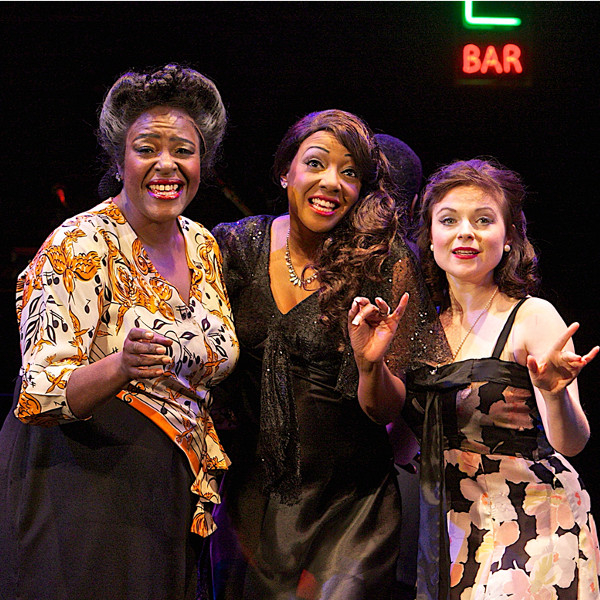Blues in the Night (Hackney Empire)
Susie McKenna’s production features a host of hit songs with great performances

© Francis Loney
As long as you’re not expecting a musical, or even a dynamic evening of musical theatre, this famous Broadway compilation of two dozen jazz and blues numbers will hit the hot spot, especially as it features recent Olivier award-winner Sharon D Clarke and the ever remarkable Clive Rowe.
These two remind me of an unstoppable force meeting an immoveable object, though I’m not sure which way round they come at each other. Clarke is a whole lot of red hot momma, not so much "bel canto" as "can belto", laying down her Bessie Smith numbers as of right, no mean feat, and filling the Empire with a wailing sound and fury. Rowe, this theatre’s favourite pantomime dame, is simply, and always, magnificent.
Clarke is "Lady" in a cheap hotel in Chicago in 1939, though place and time have no real pungency here, and there’s no "action" to speak of in Susie McKenna‘s stylishly inert and beautifully lit production except in the coarse sexual sense of carnal activity in the single entendres of a song like Andy Razak and Wesley Wilson’s "Kitchen Man" ("How I love his sausage meat").
Rowe is "Man," or rather token man, supposedly in some sort of relationship with "Lady" as well as two other somewhat stranded habituées, Paulette Ivory‘s "Woman" and Gemma Sutton‘s "Girl" – this was a breakthrough opportunity for Maria Friedman back in 1987 – who specialise in more mainstream standards, on the grounds that they’ve maybe done less living than the other two.
Sutton conveys a charming, unquenchable optimism in Vernon Duke’s "Taking a Chance on Love" while Ivory, who is not so much biding her time as kicking her heels, you feel, scores heavily with Billy Strayhorn’s "Lush Life" and suggests that she’s on the cusp of entering "Lady" territory, with second dibs in Bessie Smith .
Other great songwriters represented are Duke Ellington (Rowe does a delicious version of "I’m Just a Lucky So-and-So"), Benny Goodman, Johnny Mercer, Harold Arlen and Jimmy Cox (whose "Nobody Knows You When You’re Down and Out" is an ensemble rouser). In other words, the songs are better than anything else on the London musical stage; they just don’t have any collective musical theatre momentum, book or context.
Still, this almost qualifies in the "great night out" category if you’re down Hackney way, and of course Frank Matcham’s glorious Empire is always a "great night out" on its own. There are a couple of male dancers who are a hoot and would have been welcome more often than in their too fleeting appearances, and the small, tight band under musical director Mark Dickman plays up a storm with a few vivid squally showers to boot.












